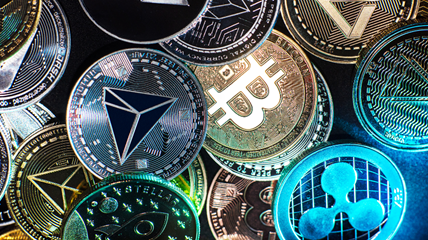What is a Cryptocurrency Token? How is it different from a Coin (Real Cryptocurrency)?

If you are new to the world of cryptocurrencies, it is easy to be “confused” by terms such as coin, token, blockchain, or smart contract. Among them, token is the concept that is most often confused with coin. So what is a token? And how to clearly distinguish between tokens and coins?
🔹 What is a Token?
A token is a type of digital asset built on an existing blockchain platform, such as Ethereum, Binance Smart Chain (BNB Chain), Solana, etc.
Tokens do not have their own blockchain but must rely on the blockchain of another coin to operate. They are created through smart contracts - code that automatically executes conditions and actions.
👉 Simply put:
Tokens are like tenants (borrowing the platform), while coins are homeowners (having their own blockchain).
🔹 What is a Coin?
Coin (native cryptocurrency) is a digital currency that operates on its own blockchain. These coins have the role of maintaining, verifying and recording transactions on the private network.
Popular examples:
Bitcoin (BTC): The first coin, running on the Bitcoin blockchain.
Ethereum (ETH): Both a coin and a platform for creating many other tokens.
BNB: The native coin of Binance Smart Chain.
🔍 Quick Comparison of Tokens and Coins
Criteria Coin Token
Private blockchain ✅ Yes ❌ No
Created by Blockchain mechanism Smart contract on available blockchain
Transaction fee Use the same coin Use the native coin of the running blockchain
Purpose of use Transaction, value storage Services, utilities, governance, rewards
Examples BTC, ETH, BNB, SOL USDT, CAKE, SAND, AXS
🔸 Popular Token Types
1. Utility Token
Used in the project ecosystem for payment, service access, and rewards.
▶ Examples: SAND (The Sandbox), AXS (Axie Infinity)
2. Governance Token
Used to vote on the project's development direction.
▶ Example: UNI (Uniswap), COMP (Compound)
3. Security Token (Security Token)
Represents ownership of assets, shares - usually subject to securities laws.
4. Stablecoin
Is a token with a stable value, tied to assets such as USD.
▶ Example: USDT, USDC, BUSD
🔸 Why Do Projects Often Issue Tokens?
✅ Easy to issue: No need to build a separate blockchain.
✅ Quick fundraising: Used in ICO, IDO.
✅ Create community motivation: Rewards, stakes, voting.
✅ Multi-functional integration: Used in games, decentralized finance, NFT...
⚠️ Things to Be Aware of When Investing in Tokens
❌ Tokens can be created easily - leading to a proliferation of "junk" projects.
❌ Unclear project, no real product – worthless token.
Many tokens are just for “inflating” the price and then withdrawing capital (rug pull).
👉 Always check:
Exact token contract address on CoinGecko/CoinMarketCap
Development team, product roadmap
Practical application of the token
You should remember:
🔹 Coin = Has its own blockchain, like BTC, ETH.
🔹 Token = Based on another blockchain, like USDT, SAND, CAKE.
🔹 Tokens come in many forms: utility, governance, securities, stability.
🔹 Tokens are easy to create → high risk → must research carefully before investing.
